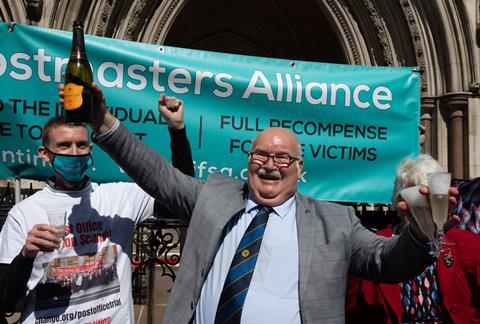Academics have begun a three-year government-funded study into the Post Office scandal and the role that the legal profession may have played.
Researchers from two universities say they want to examine and learn from the conduct of lawyers in the Horizon IT affair which led to hundreds of postmasters being wrongly accused of fraud and theft.
The project, funded by the Economic and Social Research Council, is led by Professor Richard Moorhead and Professor Rebecca Helm from the University of Exeter and Dr Karen Nokes from UCL. Together they aim to understand how the scandal was allowed to develop over 20 years and what implications it has for professional ethics and the in-house legal sector.
Moorhead said: ‘The research will enable us to deepen our engagement with the victims affected by the scandal; ensure that the right lessons are learned about what went wrong and why; and work on practical strategies to reduce the chances of such terrible events happening again.’
Around 700 people were falsely accused and sometimes convicted of criminal offences based on the Horizon IT system which was introduced by the Post Office after the turn of the century. Many were thrown out of their businesses, left in debt and had their livelihoods destroyed. To date, more than 80 defendants have had their convictions quashed on appeal and hundreds have applied to be part of ongoing compensation schemes.

Researchers will interview key figures from in the scandal, including postmasters, and will build up case studies of how lawyers were involved in the prosecutions and pursuits of victims.
Nokes added: ‘The scandal shows that when it works badly the legal system, and lawyers in particular, can have egregious effects on ordinary people’s lives. Through our research with victims and lawyers, we plan to develop strategies that can be used to encourage lawyers to consider and, if necessary rethink, their own professional mindsets.’
The whole matter is currently subject to a statutory judicial inquiry, with the role of legal advisers set to come under the spotlight during the next phase of live evidence beginning in June.
Regulators have said they will closely monitor the progress and outcomes of the inquiry – the Solicitors Regulation Authority has been identified as a core participant with access to relevant files and documents – and researchers on the new project will meet with the SRA, Legal Services Board and the justice select committee as part of their work.
This article is now closed for comment.































18 Readers' comments